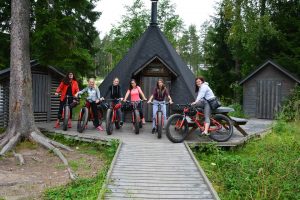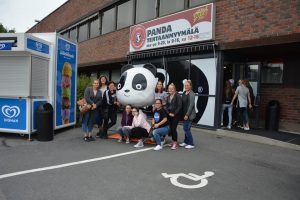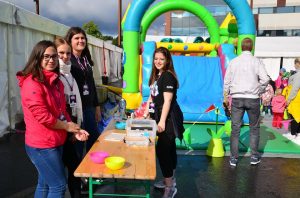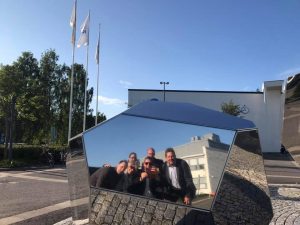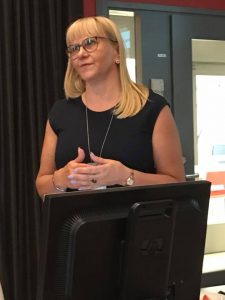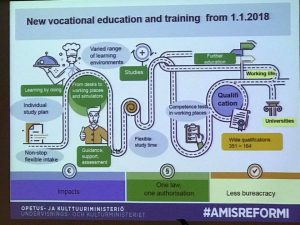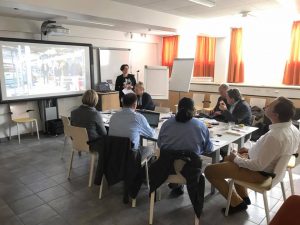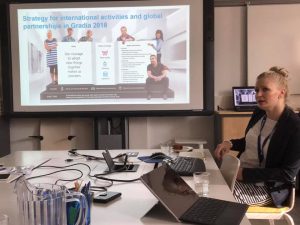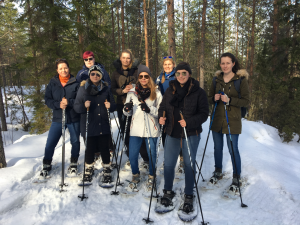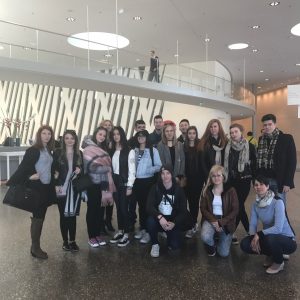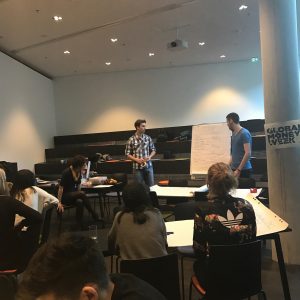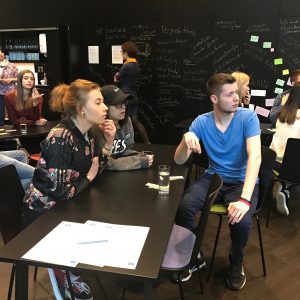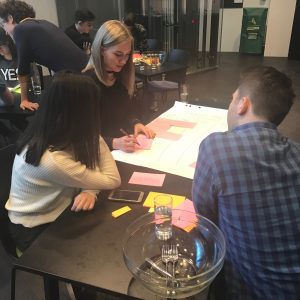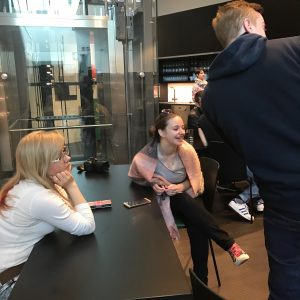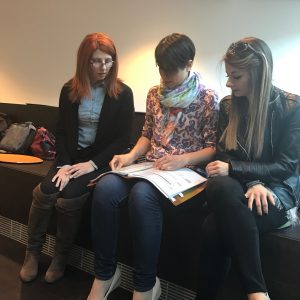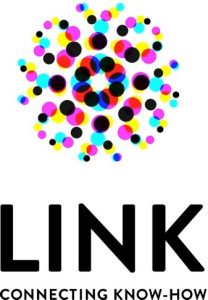Tourism Activities programme has hosted the first official international study module on nature sports tourism in Jyväskylä 14 August – 8 September 2017.
Teachers Hanna Syvälahti and Timo Lehtonen, led by Programme Manager Eeva-Liisa Hjelt, have created a 3-4 week module that integrates the incoming students into a Finnish class and immerses all participants into the possibilities of Finnish nature tourism. The incoming participants were 9 learners from SŠGT Celje High school for tourism (Slovenia) and 5 learners from BBS Wittmund (Germany). The concept has been tested and developed in previous years, with participants from Germany, Estonia and Italy. The programme this time included e.g. kayaking, fat biking, nature trails, Finnish food and sauna culture, a variety of summer activities as well as great events. For the Finnish students the module has also been an excellent opportunity for Internationalisation at Home (IaH).
The module is developed based on the current teaching programme at our college with the help of the ECVET recommendation to facilitate easier validation and recognition at the sending organisations. The module is described in terms of learning outcomes (knowledge, skills and competences) and the assessment is done in a valid, reliable and transparent manner.
The expected learning outcomes of the module were:
- to use appropriate equipment in different situations (various outdoor activities)
- to take care of equipment (maintenance)
- to take care of different venues (preparatory tasks, service, cleaning, maintenance)
- to utilize sector specific language in customer service situations and guiding (English)
- to take responsibility for guidance
- to take care of own safety and to take care of customer safety (theory of safety plans in practical assignments)
- to co-operate in his/her working community, to work in a team
- to assess his/her own work and actions
The development of the module will continue in the Winter School which will take place in March 2018, when the Ma17b class will study nature tourism activities in completely different conditions with another group of incoming Erasmus students.
Photos courtesy of SŠGT Celje
More information:
Teachers Hanna Syvälahti (at)jao.fi and Timo Lehtonen
International Coordinator Rea Tuominen (at)jao.fi
